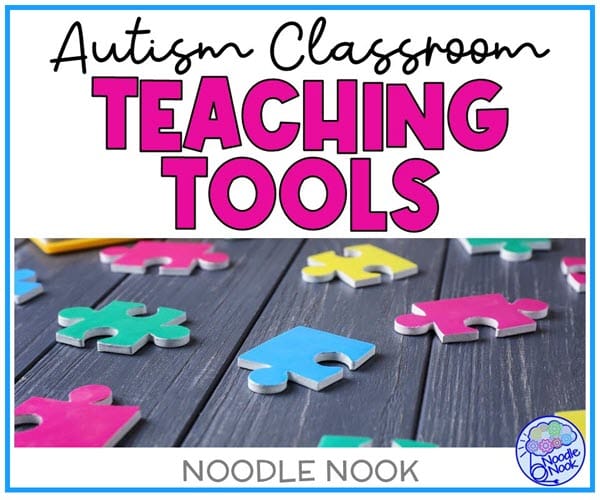Raising and educating a child with autism can be both rewarding and incredibly challenging. For families in Kansas, the state offers a range of services and supports designed to meet the unique educational needs of students on the autism spectrum. Special education programs here aim not only to help students learn but also to empower them to communicate, build relationships, and gain independence. As awareness and understanding of autism grow, so does the quality and reach of support across Kansas’s public schools, therapeutic centers, and specialized programs.

Understanding Autism and Special Education
Autism Spectrum Disorder (ASD) is a developmental condition that affects how individuals perceive the world and interact with others. Because every child with autism is different, special education must be flexible and individualized. In Kansas, schools are required by law to provide tailored educational plans—called Individualized Education Programs (IEPs)—that address each student’s specific strengths, challenges, and goals.
These plans are developed collaboratively by educators, specialists, and families. They may include speech therapy, occupational therapy, behavior support, and academic modifications. The goal is to provide meaningful access to education in the least restrictive environment possible.
Statewide Services and Programs in Kansas
Kansas has made strides in creating a network of services to support children with autism. Public schools, regional cooperatives, and nonprofit organizations all play a role in delivering educational and therapeutic support. Here are some of the key components of special education for autism in the state:
Kansas State Department of Education (KSDE)
KSDE provides oversight and guidance for special education programs across the state. Through its Technical Assistance System Network (TASN), the department offers professional development and resources for educators and families. The TASN Autism and Tertiary Behavior Supports (ATBS) project, in particular, is a key resource in helping school staff better serve students with autism.
Interlocal Cooperatives and Service Centers
In many parts of Kansas, smaller school districts join together in cooperatives to pool resources for special education. These interlocal arrangements allow schools in rural areas to access services like autism specialists and behavioral consultants that might otherwise be out of reach. Some of the major service centers include:
- Southwest Plains Regional Service Center
- Greenbush Education Service Center
- Central Kansas Cooperative in Education
These centers provide training, direct services, and consultation to educators and families.
Specialized Classrooms and Inclusive Environments
Depending on the child’s needs, Kansas schools offer a range of classroom settings. Some students benefit most from inclusion in a general education classroom with the support of a paraprofessional or special education teacher. Others may require a more structured, self-contained classroom designed specifically for students with autism.
Comparison of Learning Environments
| Setting | Features | Best For |
|---|---|---|
| Inclusive Classroom | General education with support, peer interaction, modified instruction | Students with mild to moderate autism who benefit from social exposure |
| Resource Room | Small group instruction, specialized teaching | Students who need extra help in specific subjects |
| Self-Contained Classroom | Highly structured, tailored instruction, low student-teacher ratio | Students with significant needs requiring individualized attention |
Educators in Kansas use evidence-based practices such as Applied Behavior Analysis (ABA), visual supports, and structured teaching to help students with autism succeed. The Kansas MTSS and Alignment project also encourages schools to use multi-tiered systems of support to meet all students’ needs proactively.
Early Intervention and Transition Services
Support for children with autism in Kansas begins early. The state’s Infant-Toddler Services (also known as Part C) provides early intervention for children from birth to age 3. Once children turn 3, services shift to the local school district under Part B of the Individuals with Disabilities Education Act (IDEA).
As students approach high school graduation, transition planning becomes critical. Kansas requires that IEPs for students aged 14 and older include goals and services that prepare them for life after school—whether that means college, employment, or independent living. Programs such as Project SEARCH, hosted at hospitals and businesses across the state, provide hands-on training and job skills for young adults with disabilities.
Family and Community Involvement
Families are a vital part of the special education process, and Kansas encourages their involvement every step of the way. Schools are required to hold regular meetings with parents to review and update the IEP, and families have the right to participate in all decisions affecting their child’s education.
Community organizations such as Families Together, Inc. offer support, advocacy training, and information to help parents navigate the special education system. Autism-specific groups such as the Kansas Center for Autism Research and Training (KCART) also provide valuable resources for families and professionals alike.
Resources for Families in Kansas:
- Families Together, Inc.
- Kansas Technical Assistance System Network (TASN)
- Kansas Center for Autism Research and Training (KCART)
- Autism Society – Great Plains Chapter
Conclusion
Special education for children with autism in Kansas is a collaborative, evolving effort that reflects both the complexity of the condition and the commitment of the state to provide meaningful educational opportunities. From early intervention through high school transition, Kansas offers a network of services that can help children with autism thrive. With the right mix of classroom support, individualized instruction, and family involvement, students with autism can not only succeed academically but also build the skills they need for lifelong independence. As more educators and families work together, the future for children with autism in Kansas continues to grow brighter.